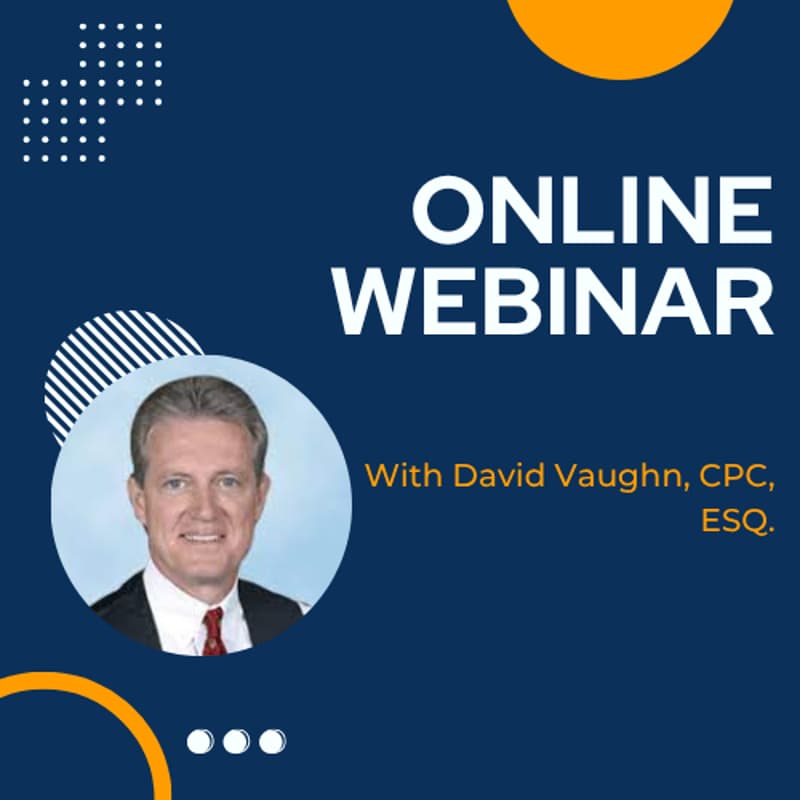

Medicare Advance Beneficiary Notice (ABN) – CMS Updated Rules and Guidelines
Medicare requires ABNs if a patient is to be billed for a non-covered service; Medicare Advantage programs do not use ABNs; commercial insurers do not use ABNs. This webinar will explore how to bill for non- covered services for Medicare, Medicare Advantage, and commercial insurers. There are numerous rules as to when ABNs can and cannot be used and how they need to be filled out and whether any changes to the ABN form can be made. Patients have a right to choose 3 options on the ABN; we will explore when each option is applicable. ABNs have specific modifiers that are required, and this webinar will explore when each modifier is used, and its effect. There are special rules for QMBs that will be addressed. We will explore what happens when a patient refuses to sign an ABN, and if it signed, when it must be signed and how long it must be kept.
Learning Objectives
The goal of this webinar is to educate providers regarding how to bill for non-covered services using ABNs and similar documents when the patient has Medicare, Medicare Advantage, Medicaid, commercial insurance, and no insurance at all. We will explore what forms must be used, and what forms cannot be used, and the rules surrounding these forms.
Areas Covered in the Session
When is an ABN used and when is it not used
What are the ABN modifiers and when is each used
Examples of ABN usage
When does the ABN have to be signed
How long must the ABN be kept
What form are required in lieu of ABNs for Medicare Advantage
What forms are required by commercial insurance and Medicaid
What forms are required if the patient is uninsured
What to do if the patient refuses to sign the ABN
What are the rules for QMBs (Qualified Medicare Beneficiaries)
What are the pros and cons of using Options 1, 2, and 3 on the ABN
Which ABN form must be used
What happens if the patient signs the ABN but then changes their mind
How to use ABNs for extended treatments for non-covered services
Refunding patients upfront payments
Can retroactive ABNs be procured
How to fill out each field of the ABN
Different types of ABNs for Part A vs Part B
Do ABNs apply to Medicare Parts C and D
Are electronic ABNs allowed, or must they be paper
Recognize the implications of issuing courtesy ABNs for services never covered by Medicare
Identify the differences between mandatory and voluntary ABNs and their appropriate usage
Understand the protocols when multiple entities are involved in patient care regarding ABN issuance
Recognize situations where routine ABNs are prohibited and the importance of individualized notices
Understand the process for collecting patient payments when an ABN is in place
Know the refund rules if Medicare pays for a service despite a signed ABN
Understand the importance of accurate ABN completion to avoid claim denials and compliance issues
Recognize the potential consequences of coercing a patient into signing an ABN
Explore the use of ABNs in scenarios involving upgraded equipment or services
Understand the role of ABNs in protecting providers from allegations of non-compliance and recoupment
Discuss common misconceptions and pitfalls associated with ABN usage
Engage in a Live Q&A session to address specific questions and scenarios related to ABNs
Suggested Attendees
Physician Practices
Medical Providers, who are Involved in the Payment Process of their Practice
C-level Executives
Office Staff and Billing Managers
Medical Billing Companies
Hospital Revenue Cycle Staff
Physicians and Nurses
Physician Assistants
Nurse Practitioners
Medical Assistants
Practice Manager
Office Managers
Medical Biller, Coders and Auditors
CDI Specialists
Collection Staff
Compliance Officers
Patient Accounts Personnel
Medical Record Supervisors
Health Information Management Administrators and Technicians
Other Personnel Interested in Medicare Program and Payment System
About the Presenter
David Vaughn, ESQ., CPC, is an attorney with over 25 years of experience whose practice involves representing healthcare providers around the country regarding billing and healthcare compliance issues. David has also been a certified coder for 25 years. David has previously written articles on the No Surprises Act (“NSA”) and spoken nationally regarding this topic. Over the past 25 years David has been retained to defend healthcare providers in criminal investigations, False Claims Act cases, OIG investigations, FBI investigations, and a myriad of Medicare audits. David and his firm perform internal audits for their own clients to ensure compliant billing.
Additional Information
System Requirement:
Internet Speed: Preferably above 1 MBPS
Headset: Any decent headset and microphone which can be used to hear clearly
Live Course Cancellation Policy: If for any reason Skillacquire need to cancel this program, Skillacquire will notify participants by email of the cancellation no less than 24 hours prior to the expected start time.
For more information, you can reach out to the below contact:
Toll-Free No: 1-302-444-0162
Email: care@skillacquire.com